 Shutterstock
Shutterstock
Dogs are exceptional therapy animals because they can provide comfort and companionship. Certain breeds stand out for their natural disposition, temperament, and eagerness to bond with people. These dogs are trained to provide emotional support and physical comfort in various settings, including hospitals, schools, and rehabilitation centers. Their affectionate nature and intuitive understanding of human emotions allow them to connect with needy individuals, bringing joy and relief during challenging times. Here are some of the dog breeds that excel as therapy dogs.
Labrador Retriever
 Shutterstock
Shutterstock
Labrador Retrievers are renowned for their gentle and friendly nature, making them one of the top choices for therapy work. Their eagerness to please and affectionate demeanor allow them to connect easily with people of all ages. Labs are naturally sociable and thrive on interaction, which is ideal for therapy settings where companionship is essential. Their calm presence can bring comfort to those facing physical or emotional challenges. Additionally, Labs are highly trainable, making them effective in following commands and adapting to various environments, whether in hospitals, schools, or nursing homes.
Golden Retriever
 Shutterstock
Shutterstock
Golden Retrievers are synonymous with warmth and friendliness, which makes them exceptional therapy dogs. Their patient and loving nature allows them to bond easily with people, providing emotional support and comfort. Goldens are particularly adept at sensing human emotions and often respond with gentle nudges or cuddles, which can be incredibly soothing for those in distress. They excel in therapy environments due to their calm demeanor and eagerness to interact with individuals. Whether visiting hospitals or providing support in schools, Golden Retrievers bring joy and a sense of peace to those they meet.
Poodle
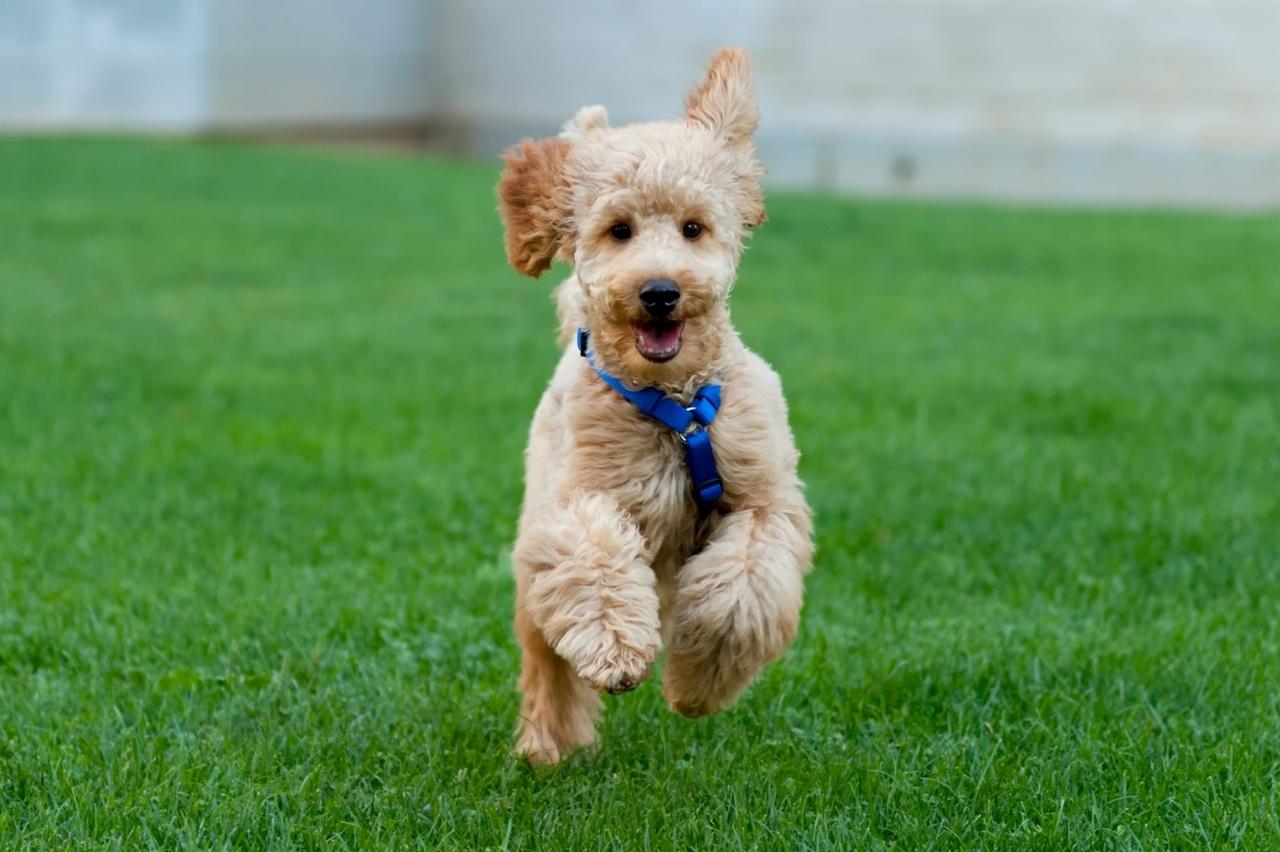 Shutterstock
Shutterstock
Poodles, available in standard, miniature, and toy sizes, are intelligent and highly adaptable, making them excellent therapy dogs. Their keen sense of awareness allows them to read human emotions effectively, and their friendly nature fosters immediate connections. Poodles are also hypoallergenic, which can be beneficial in environments where individuals may have allergies. They enjoy engaging with people through play or simply providing a comforting presence. Their trainability and enthusiasm for learning make them ideal candidates for therapy work, providing essential support to those in need.
Beagle
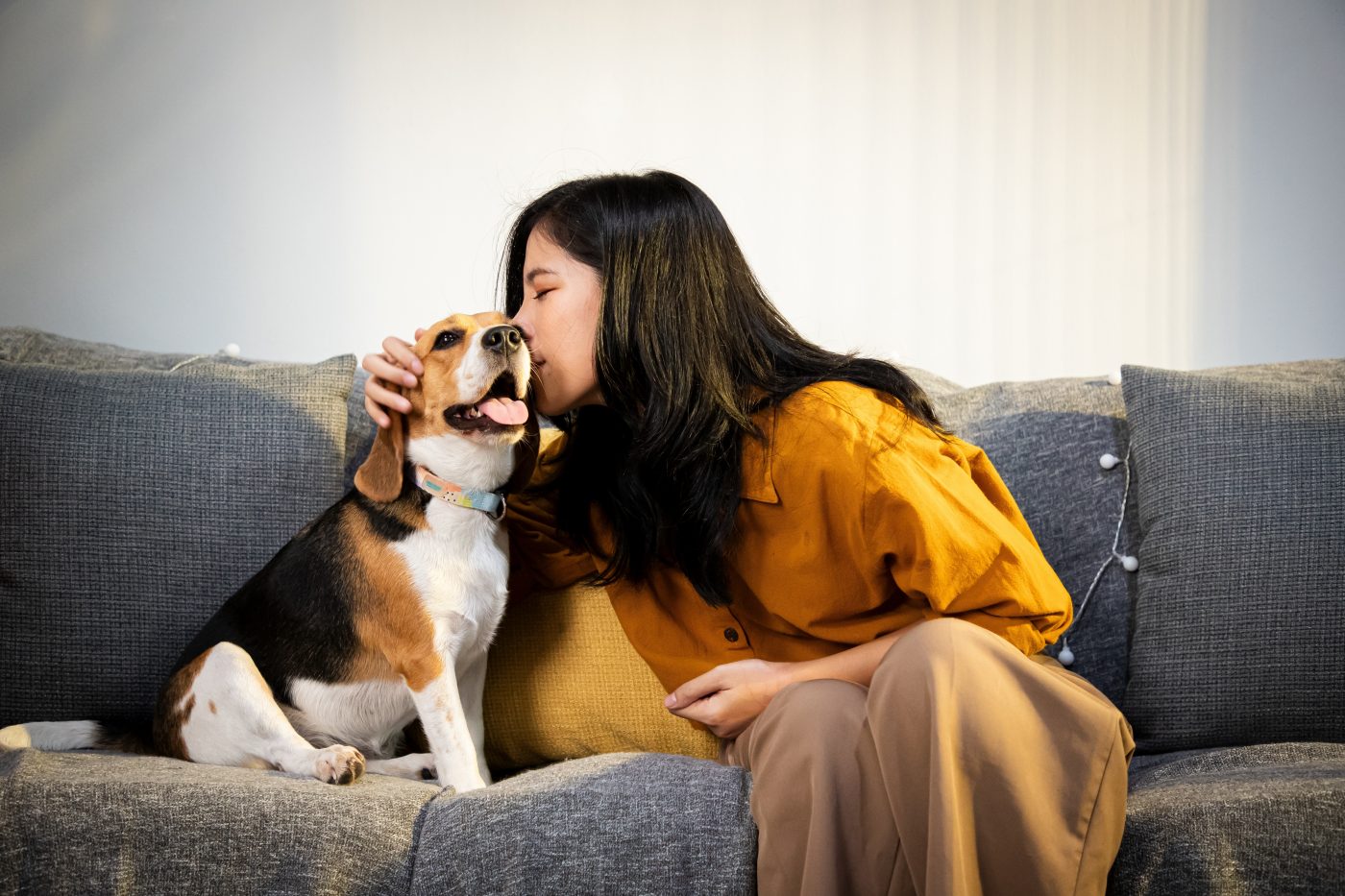 Shutterstock
Shutterstock
Beagles, known for their friendly and curious nature, can make outstanding therapy dogs. Their gentle temperament and affectionate disposition allow them to connect deeply with people, often providing comfort through their playful antics and companionship. Beagles are particularly good with children, making them ideal for therapy settings in schools and hospitals. Their love for exploration and social interaction means they thrive in environments where they can engage with various individuals. With their keen sense of smell, Beagles can also assist in therapy involving emotional support through scent, enhancing their ability to connect with others.
Cavalier King Charles Spaniel
 Shutterstock
Shutterstock
Cavalier King Charles Spaniels are small, affectionate dogs known for their loving and gentle nature. They have an innate ability to sense human emotions and respond with comfort and support, making them ideal therapy companions. Their friendly demeanor and eagerness to please allow them to connect effortlessly with people of all ages. Cavaliers are particularly well-suited for therapy work in hospitals and nursing homes, where their calming presence can provide significant emotional relief. Their small size also makes them easy to handle, allowing them to snuggle up with individuals needing companionship.
Boxer
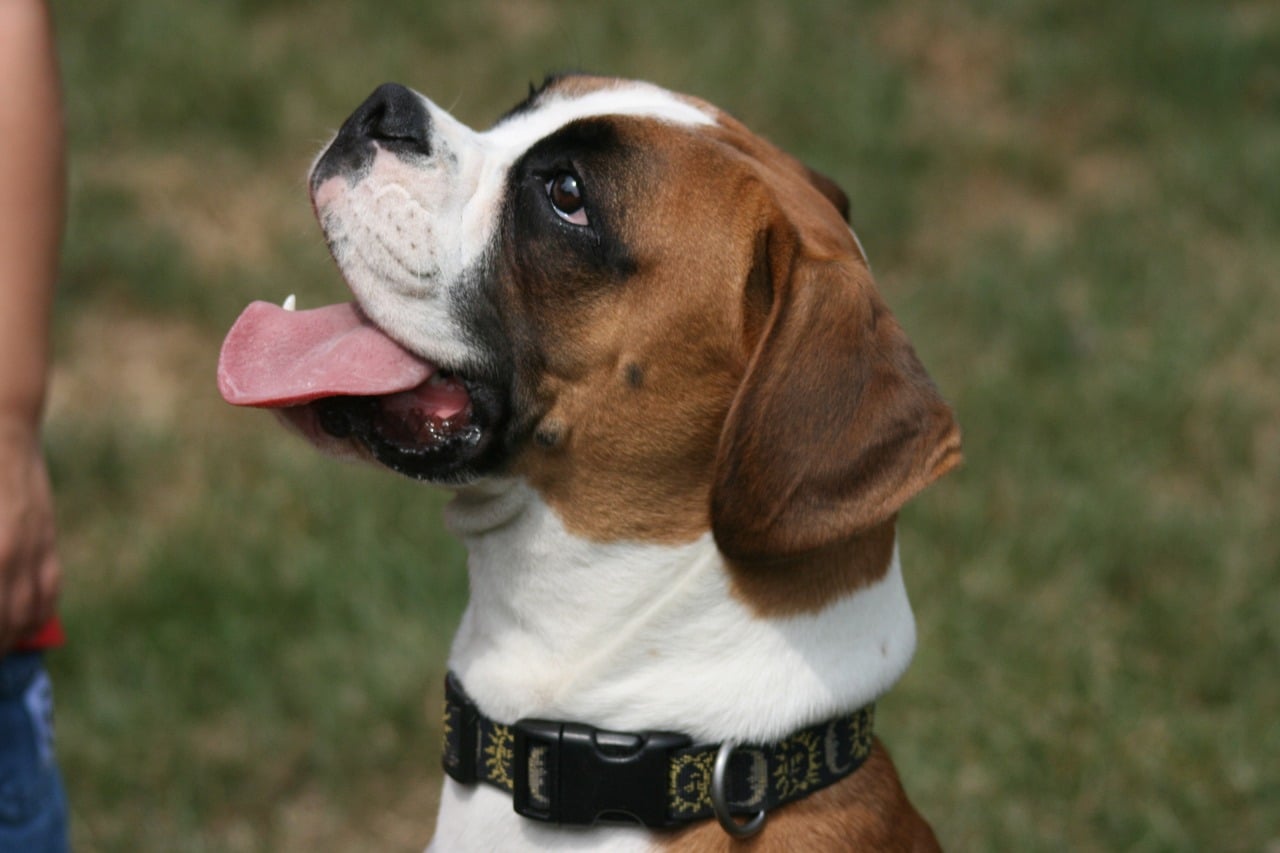 Shutterstock
Shutterstock
Boxers are known for their playful and affectionate nature, which can be incredibly uplifting in therapy settings. Their boundless energy and enthusiasm for life make them excellent companions, capable of bringing smiles to even the heaviest of hearts. Boxers are naturally loyal and protective, ensuring that individuals feel safe and cared for. Their intuitive nature allows them to sense when someone is feeling down, and they often respond with comforting nudges or playful antics. Boxers thrive on human interaction, making them perfect for therapy roles where emotional connection and joy are needed.
Yorkshire Terrier
 Shutterstock
Shutterstock
Despite their small size, Yorkshire Terriers possess a big personality and a loving nature, making them excellent therapy dogs. Their affectionate and spirited demeanor allows them to bond easily with individuals, providing companionship and comfort. Yorkies are particularly well-suited for therapy work in homes and hospitals, where their small size makes them easy to handle and cuddle. Their playful nature can brighten the spirits of those they visit, and they have an uncanny ability to sense when someone is in need of emotional support. Yorkies prove that great things come in small packages, especially regarding therapy.
Dalmatian
 Shutterstock
Shutterstock
Dalmatians are well-known for their distinctive spots and friendly disposition, which can make them wonderful therapy dogs. Their energetic and sociable nature allows them to engage positively with people in schools, hospitals, or rehabilitation centers. Dalmatians thrive on human interaction, and their playful personality can uplift those they meet. Their loyalty and protective instincts make individuals feel safe and valued, while their charming antics distract them during challenging times. With their striking appearance and friendly demeanor, Dalmatians can bring joy and comfort to those they encounter.
Newfoundland
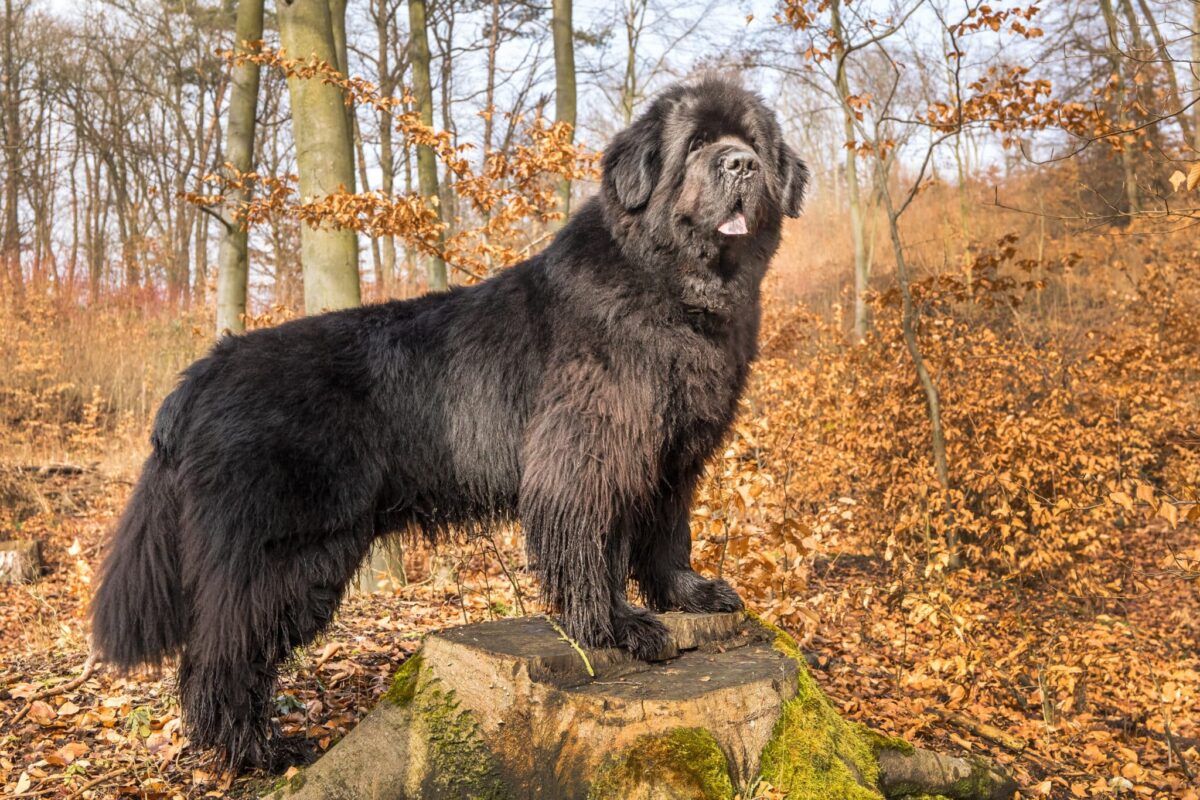 Shutterstock
Shutterstock
Newfoundlands are gentle giants known for their calm and nurturing temperament, making them excellent therapy dogs. Their large size belies their gentle nature, and they often have an innate ability to sense when someone is distressed. Newfoundlands are incredibly affectionate and protective, providing comfort and security to those in need. Their patient demeanor makes them ideal for therapy work in various environments, from hospitals to schools. Newfoundlands are particularly good with children and the elderly, often becoming beloved companions who offer unwavering support and comfort during difficult times.
Bichon Frise
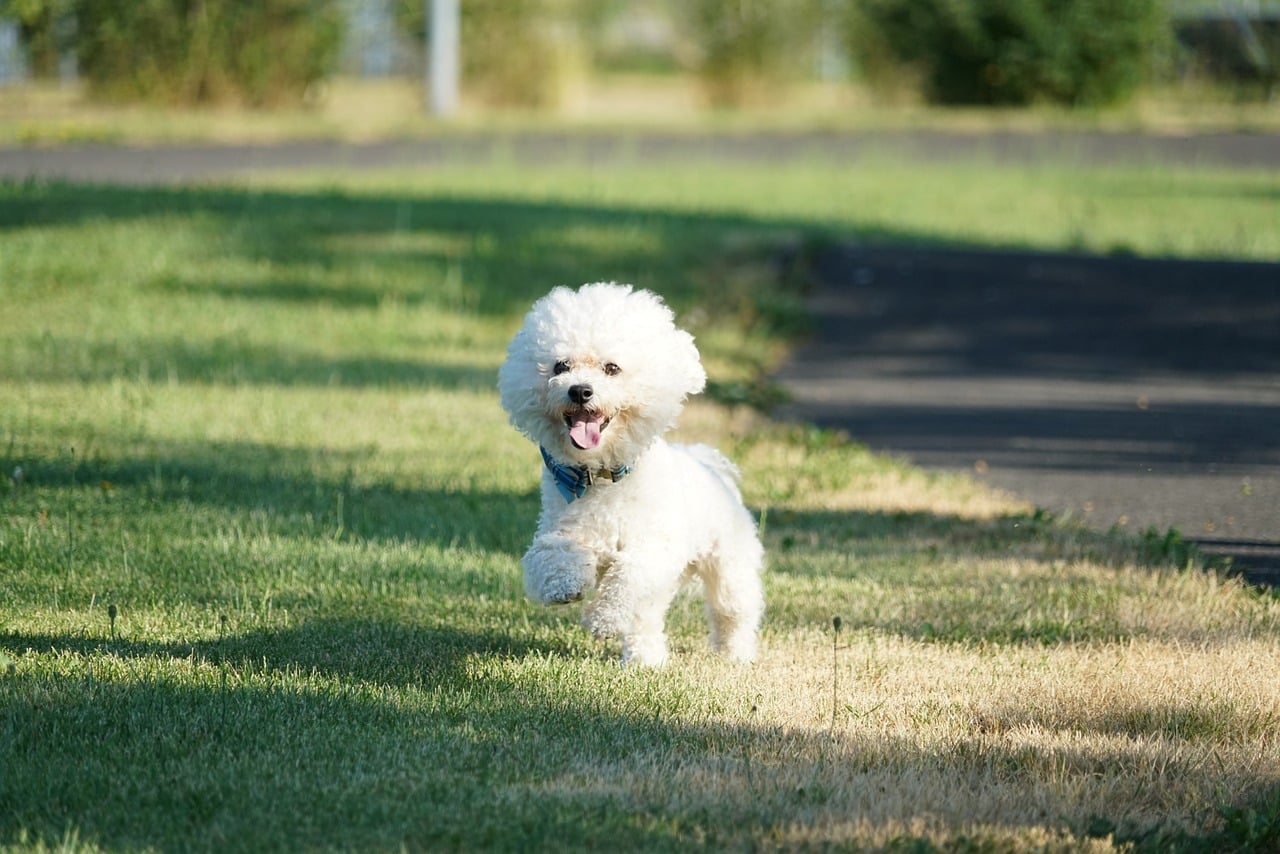 Shutterstock
Shutterstock
Bichon Frises are cheerful, affectionate little dogs that excel in therapy work. Their friendly disposition and playful nature allow them to connect quickly with people, providing joy and companionship. Bichons are hypoallergenic, which makes them suitable for therapy settings where allergies might be a concern. Their cheerful barks and cuddly nature can lift the spirits of individuals in hospitals or nursing homes, making them a popular choice for therapy work. Bichon Frises thrive on attention and affection, bringing laughter and comfort to those around them with their playful antics.
Cocker Spaniel
 Shutterstock
Shutterstock
Cocker Spaniels are gentle, affectionate dogs that are well-suited for therapy work due to their friendly and sociable nature. These dogs are eager to please and enjoy spending time with people, making them ideal companions for therapy sessions. Cocker Spaniels are particularly good at sensing when someone feels down, often offering gentle nudges or snuggles to provide comfort. Their loving demeanor and playful spirit can brighten the mood in hospitals, schools, or any environment where support is needed. Their adaptability and affectionate nature make them fantastic therapy dogs who bring joy to those around them.
Great Dane
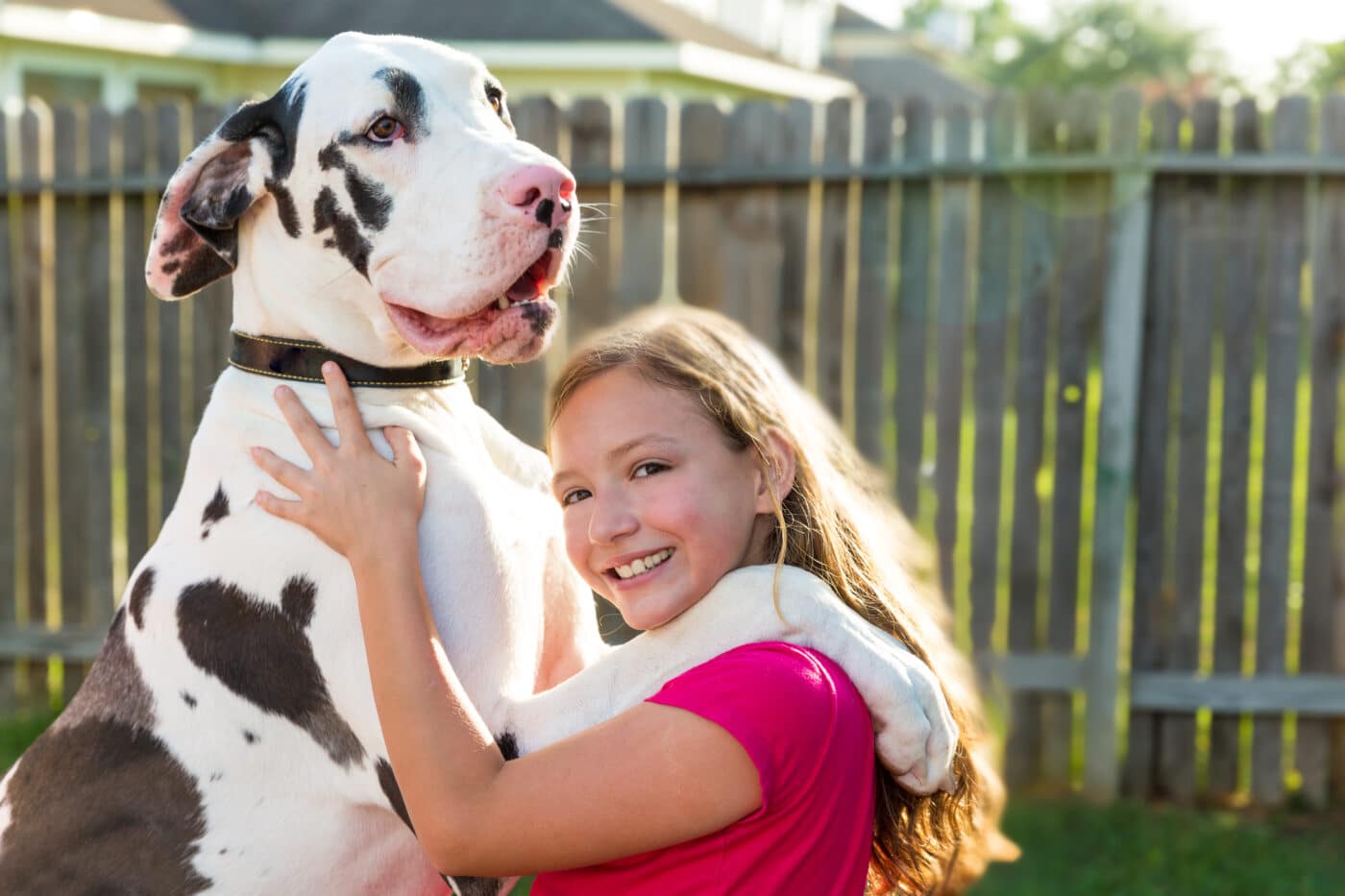 Shutterstock
Shutterstock
Despite their imposing size, Great Danes are gentle giants that excel as therapy dogs. Known for their calm demeanor and patient nature, these dogs are perfect for offering emotional support and comfort. Their affectionate and friendly disposition allows them to form strong bonds with people of all ages, including children and the elderly. Great Danes have an uncanny ability to sense when someone is in need of comfort, often resting their large, reassuring heads in a person’s lap. Their size and gentle temperament make them ideal for providing a sense of safety and stability, making them fantastic companions in therapy settings.
Pembroke Welsh Corgi
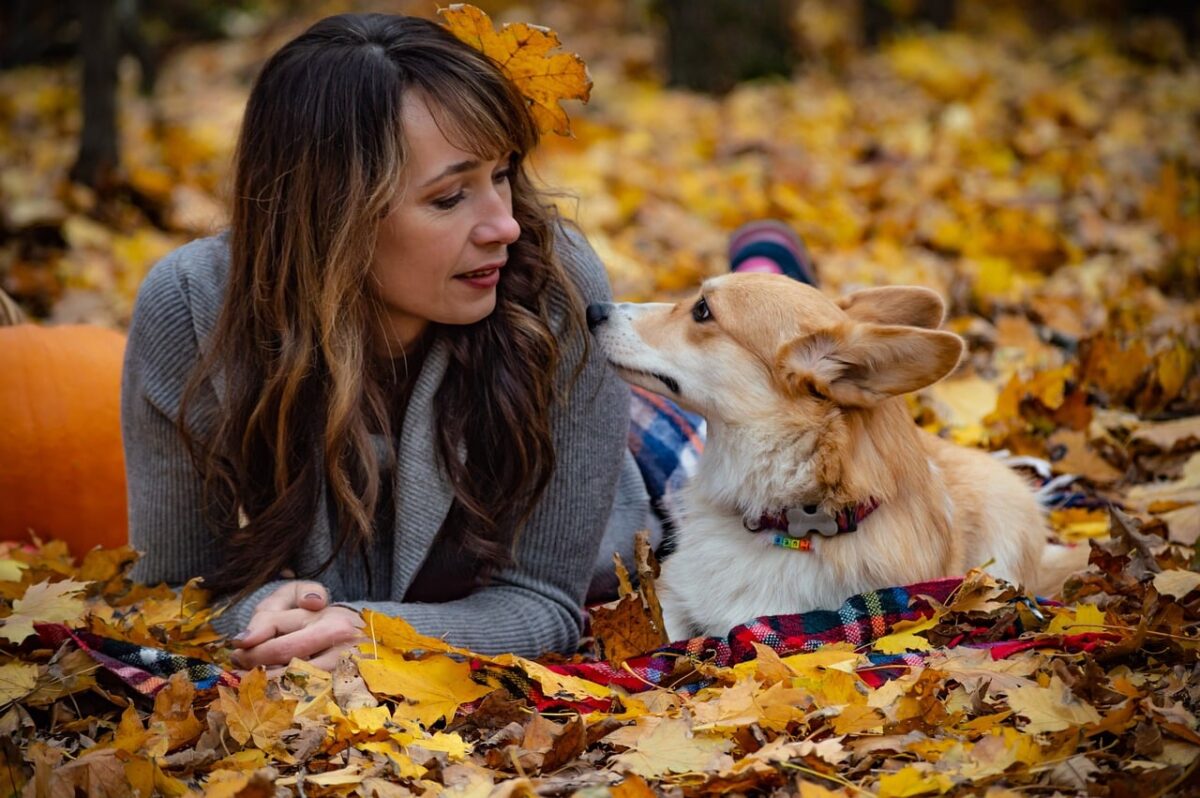 Shutterstock
Shutterstock
Pembroke Welsh Corgis are small but mighty dogs that make excellent therapy animals. Known for their cheerful and friendly nature, Corgis bring joy and positivity to any environment. Their expressive faces and happy-go-lucky attitude can instantly lift the spirits of those they interact with. Corgis are highly intelligent and trainable, making them well-suited for the structured demands of therapy work. They are also very empathetic and attuned to human emotions, often sensing when someone needs extra support. Their manageable size and affectionate demeanor make them great for providing comfort in hospitals, schools, and senior living facilities.
Shiba Inu
 Shutterstock
Shutterstock
While Shiba Inus are known for their independence, they also possess qualities that make them effective therapy dogs. Their calm and composed nature allows them to be soothing to those who need comfort. Shiba Inus are highly observant and can be quite intuitive when it comes to reading human emotions. When properly socialized and trained, they can be gentle, affectionate, and attentive, making them excellent companions for therapy work. Their thick, soft fur also makes them a joy to pet, providing a tactile sense of comfort. With their unique ability to connect deeply with people, Shiba Inus can be surprisingly effective as therapy dogs.
Saint Bernard
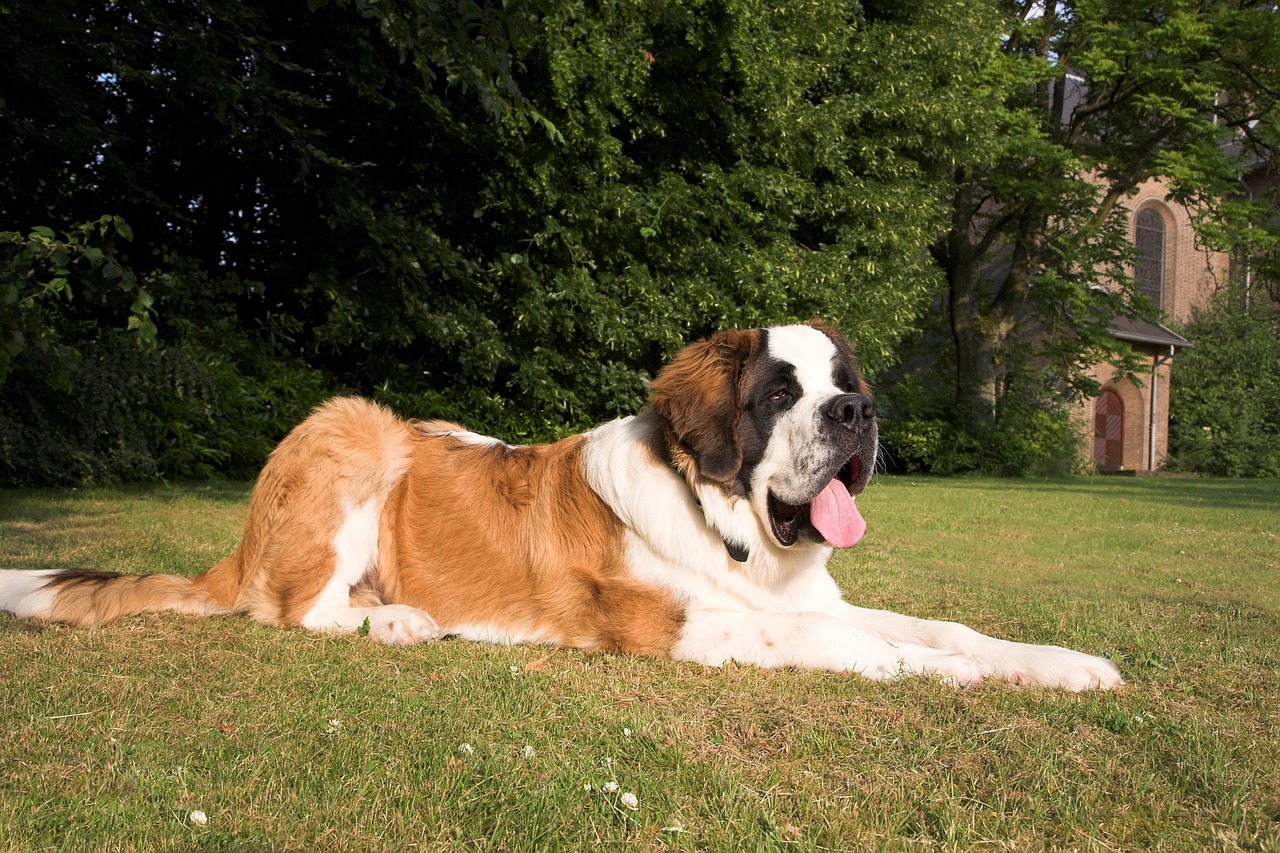 Shutterstock
Shutterstock
Saint Bernards are well-known for their gentle and patient disposition, which makes them exceptional therapy dogs. Their calm, nurturing nature allows them to offer comfort and reassurance to people in stressful situations. Saint Bernards are excellent with children and the elderly, often serving as a calming presence due to their gentle demeanor. Despite their large size, they are incredibly sweet and affectionate, often leaning in for gentle cuddles. Their natural instinct to care for others, combined with their loving personality, makes them ideal for therapy settings, whether it’s visiting hospitals, nursing homes, or disaster relief centers.
Australian Shepherd
 Shutterstock
Shutterstock
Australian Shepherds are highly intelligent and empathetic dogs that excel in therapy work. They are known for their ability to sense human emotions and often respond with comforting behavior. Their strong bond with people and eagerness to please make them perfect candidates for structured therapy sessions. Australian Shepherds are energetic but can be calm and composed when necessary, making them versatile therapy dogs. They are especially good at engaging with children and participating in activities that require focus and interaction. Their beautiful, soft coats and friendly demeanor make them an inviting and reassuring presence for those needing emotional support.
French Bulldog
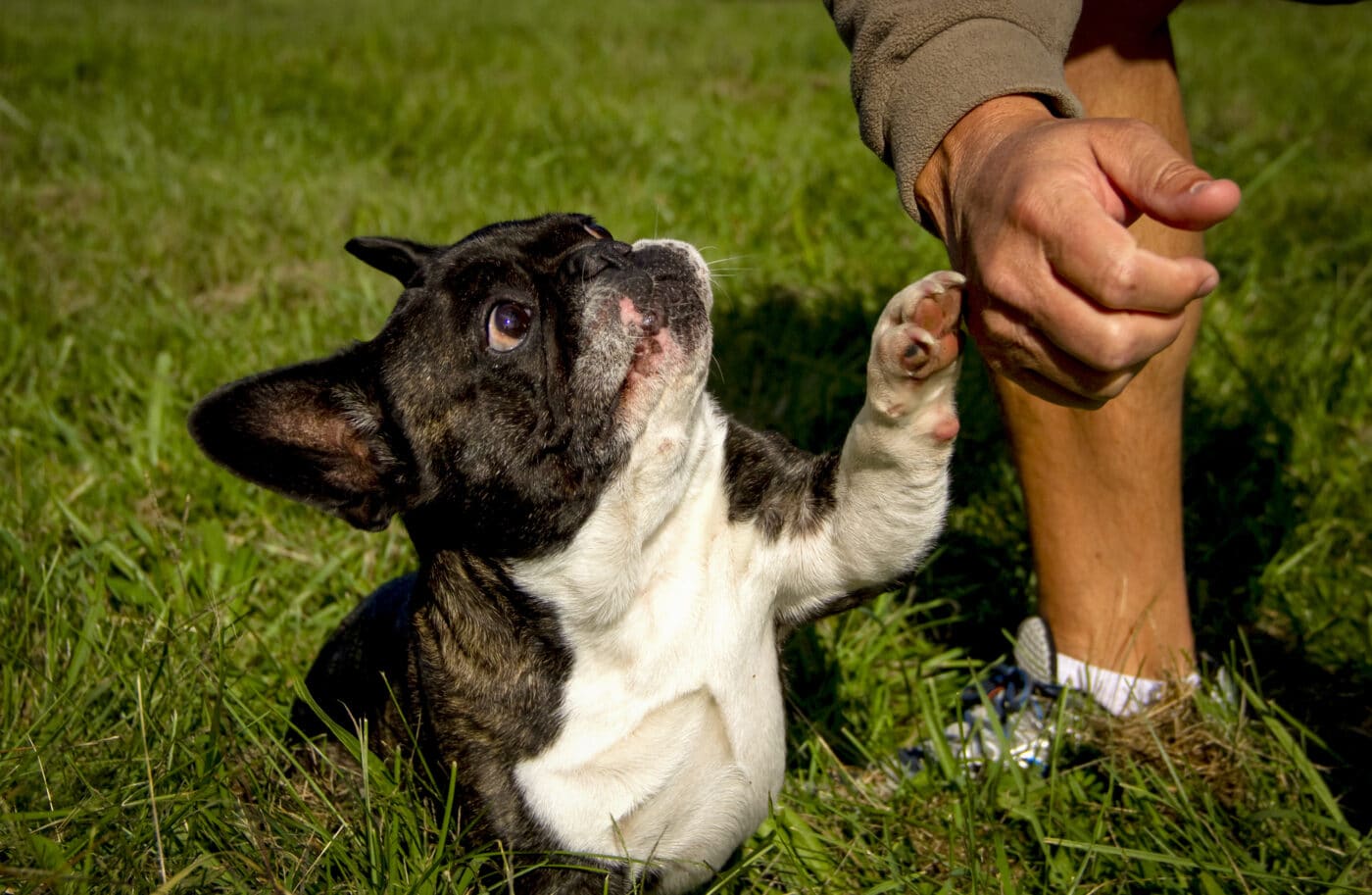 Shutterstock
Shutterstock
French Bulldogs are small dogs with big hearts, making them wonderful therapy animals. Their easygoing and affectionate nature allows them to form quick bonds with people, providing much-needed emotional support. Frenchies have an adorable, expressive face that often brings smiles and laughter, which can be incredibly therapeutic. They are calm and adaptable, thriving in various settings, including hospitals, schools, and assisted living facilities. Their compact size and friendly temperament make them easy to handle and ideal for providing comfort. Despite their playful nature, French Bulldogs are excellent at sitting quietly and offering a calming presence when needed.
Border Collie
 Shutterstock
Shutterstock
Border Collies are renowned for their intelligence and trainability, which make them outstanding therapy dogs. While they are known for their high energy, Border Collies can be incredibly gentle and focused when providing comfort. They are highly attuned to human emotions and can quickly adapt their behavior to the needs of the person they are helping. Border Collies are excellent at performing tricks or tasks that bring joy and distraction to those in need. Their natural instinct to bond with people and their strong desire to be helpful make them versatile therapy companions, suitable for both physical and emotional support.
Dachshund
 Shutterstock
Shutterstock
Dachshunds, with their playful and charming personalities, make excellent therapy dogs. Their small size makes them perfect for snuggling on laps, and their affectionate nature helps build an instant connection with people. Dachshunds are known for their loyalty and love for human interaction, and they often form strong emotional bonds with those they comfort. Their cheerful and entertaining demeanor can lift the spirits of anyone they meet, making them ideal for visiting hospitals or nursing homes. Despite their stubborn streak, Dachshunds can be well-trained for therapy work and bring warmth and joy to those who need it most.
Bernese Mountain Dog
 Shutterstock
Shutterstock
Bernese Mountain Dogs are gentle, loving, and incredibly empathetic, which makes them perfect therapy dogs. Their calm demeanor and affectionate nature allow them to offer comfort and emotional support to people of all ages. Berners are especially good at working with children and the elderly, providing a warm, reassuring presence. Their large, fluffy build makes them ideal for cuddles, and their soft coat provides a comforting, tactile experience. Despite their size, Bernese Mountain Dogs are gentle and sensitive, always aware of the emotions around them. Their loyalty and sweet temperament make them natural healers in therapeutic environments.
Greyhound
 Shutterstock
Shutterstock
Greyhounds are known for their gentle and laid-back personalities, making them surprisingly effective therapy dogs. These elegant dogs are incredibly calm and often called “couch potatoes” because of their love for lounging. Greyhounds are excellent at providing quiet, calming support, which is particularly valuable in therapy settings. Their affectionate and patient nature allows them to connect deeply with people, offering comfort and companionship. Despite their athletic background, they are content with minimal exercise and are happy to spend time relaxing alongside someone who needs emotional support. Their graceful presence and gentle disposition make them ideal for various therapeutic environments.
Great Pyrenees
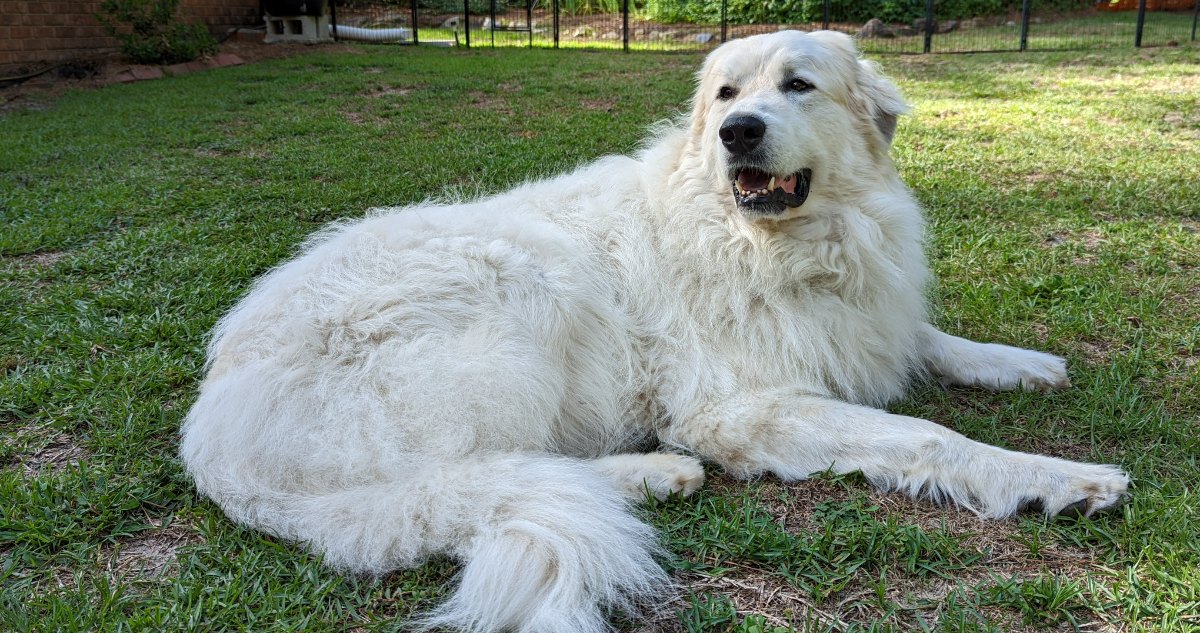 Shutterstock
Shutterstock
Great Pyrenees are large, majestic dogs with a serene and nurturing presence, making them exceptional therapy animals. Known for their protective and gentle temperament, they are particularly well-suited to offering comfort and a sense of safety. Their calm demeanor and patient attitude make them great for working with children and the elderly. Great Pyrenees are also highly intuitive and can sense when someone is distressed, often responding with gentle affection. Their thick, fluffy coat provides a comforting tactile experience, and their unwavering loyalty makes them a reliable source of emotional support in therapy settings.
Papillon
 Shutterstock
Shutterstock
Papillons, with their cheerful and friendly personalities, make excellent therapy dogs. Their small size makes them easy to handle and perfect for sitting on laps, offering close and comforting interactions. Papillons are highly intelligent and quick to learn, making them adaptable to various therapy tasks and environments. They are naturally affectionate and enjoy being around people, which helps them form strong connections. Their butterfly-like ears and playful demeanor often bring smiles to those they visit, making them a ray of sunshine in hospitals, nursing homes, or schools. Despite their small stature, Papillons have a big heart and a talent for providing emotional support.
The Pup-ularity of Therapy Dogs
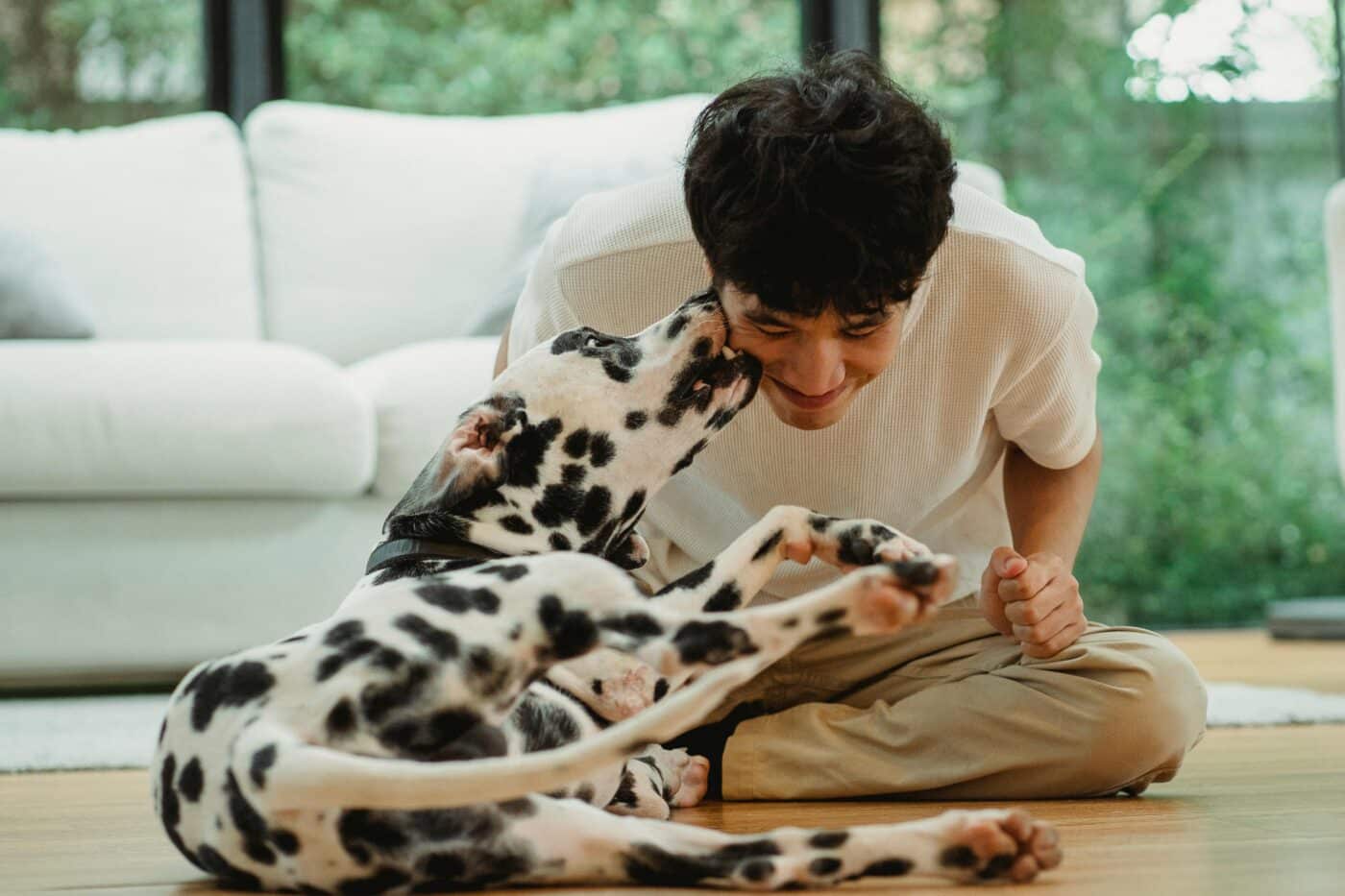 Shutterstock
Shutterstock
The world of therapy dogs is filled with heartwarming stories of canine compassion and companionship. These breeds bring joy and provide vital emotional support to those in need. Their innate ability to connect with humans makes them invaluable in therapy settings, where they help alleviate stress, anxiety, and loneliness. Whether snuggling with patients or entertaining children, therapy dogs create bonds that transcend words. So, if you ever need comfort, you might find that the best medicine comes with four paws and a wagging tail!
 Toledo, United States.
Toledo, United States.